Strengthening Alliances to Employ National and Regional Tools in Favor of the Afro-Peruvian People
Washington, DC, December 11, 2018 – The International Institute on Race, Equality, and Human Rights (Race & Equality), together with the Centro de Desarrollo de la Mujer Negra Peruana [Center for the Development of Black Peruvian Women] (CEDEMUNEP), coordinated a panel entitled “Strengthening Alliances for Implementing PLANDEPA and Using the Inter-American System of Human Rights,” […]
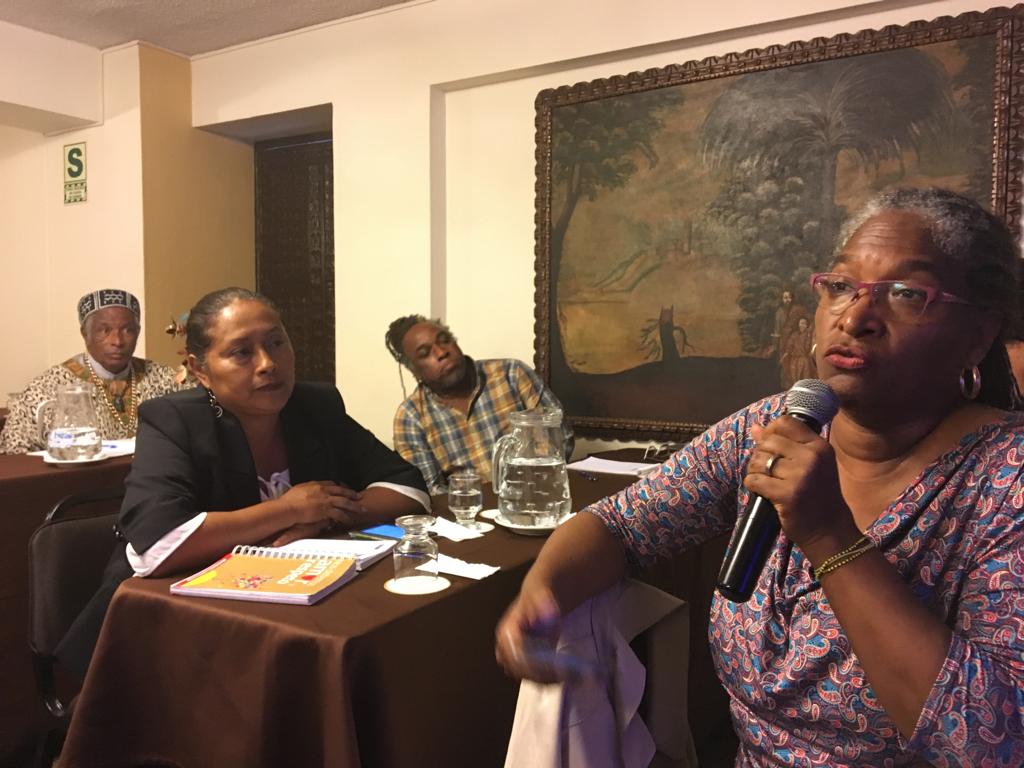
Washington, DC, December 11, 2018 – The International Institute on Race, Equality, and Human Rights (Race & Equality), together with the Centro de Desarrollo de la Mujer Negra Peruana [Center for the Development of Black Peruvian Women] (CEDEMUNEP), coordinated a panel entitled “Strengthening Alliances for Implementing PLANDEPA and Using the Inter-American System of Human Rights,” held on December 5, 2018 in Lima, Peru.
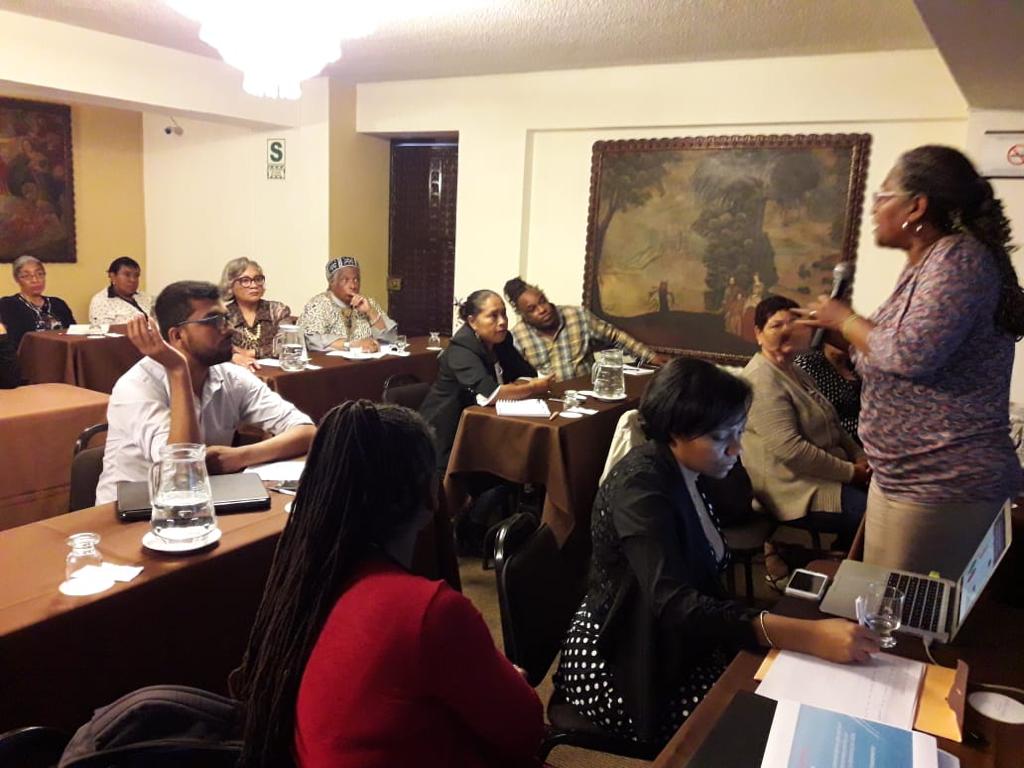
The panel’s objective was to identify the achievements realized by PLANDEPA and its projections for the coming periods, as well as train activists on opportunities provided by the Inter-American System of Human Rights to empower them and contribute to the design of more effective advocacy in these areas. Participants on the panel included Susana Matute, Director of Policy for the Afro-Peruvian Population in the Ministry of Culture; Cecilia Ramírez, Executive Director of CEDEMUNEP; and Elvia Duque, Program Officer for Latin America at Race & Equality, and especially, activists from the most recognized Afro-Peruvian organizations in Peru.
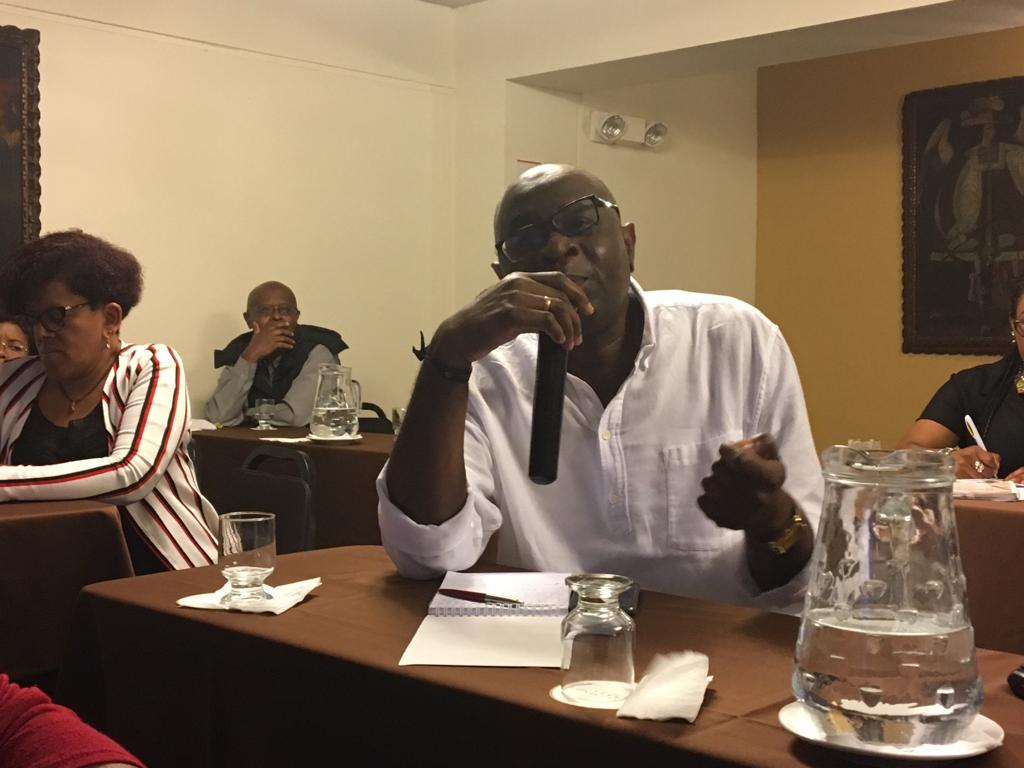
During the event, Susana Matute of the Ministry of Culture emphasized PLANDEPA’s achievements since its founding with regard to the inclusion of the question on ethnic/racial self-identification in the 2017 Census and the other key activities that have enabled more direct dialogue with Afro-Peruvian activists, dubbed ‘Somos Familia’ [We Are Family]. Likewise, she said that PLANDEPA lacks various elements, such as financing, that has limited its actions and therefore its scope. Following a long debate with members of the public, among other points discussed, she concluded that it was necessary to incorporate new topics in the new proposal for constructing PLANDEPA.
This space also permitted the in-depth identification of the dynamics of the Grupo de Trabajo con Población Afroperuana [Afro-Peruvian Population Working Group] (GTPA) and the need for the Peruvian State to recognize Afro-Peruvians as a ‘people,’ which would permit a more effective response through public policies to the principal socioeconomic gaps they face.
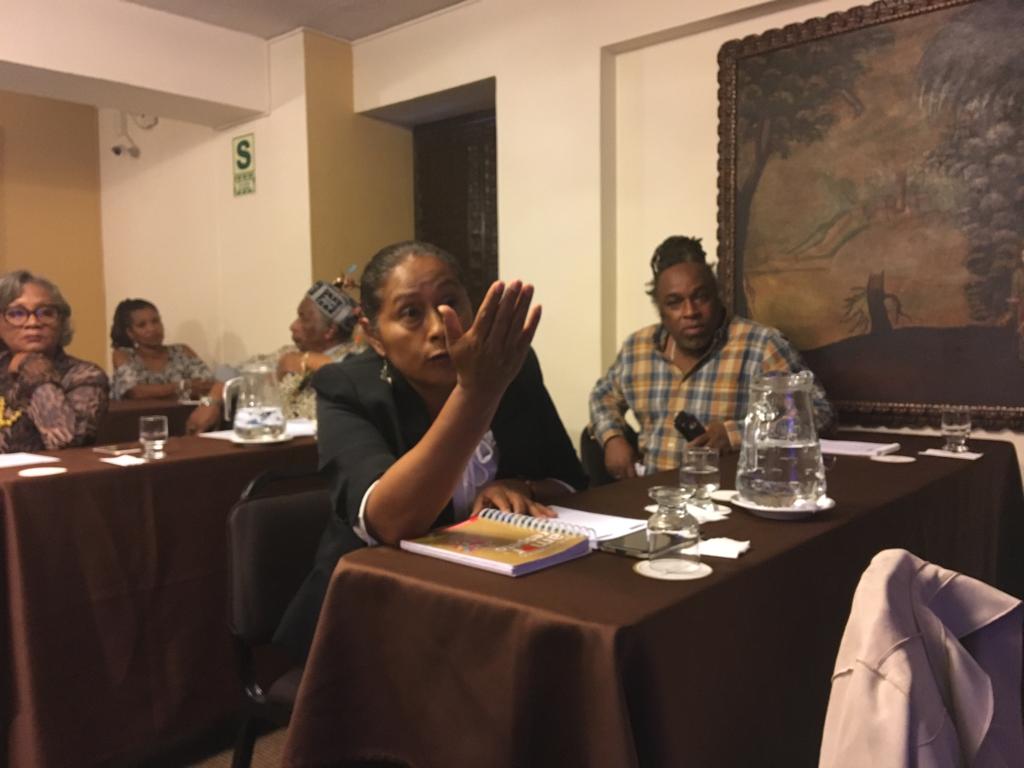
Once the discussion about PLANDEPA was finished, Elvia Duque of Race & Equality made a presentation on the Inter-American System of Human Rights. The objective of the second part of the panel was to inform the public regarding the various tools and spaces for participation provided by the Inter-American System of Human Rights, and to encourage them to more proactively make use of them. The discussion focused on the importance of obtaining consultative status with the OAS; thematic hearings; the Rapporteurship on Persons of African Descent and against Racial Discrimination; and the Convention against Racism. The public agreed to coordinate with the organizations present the petition for a thematic hearing on PLANDEPA and the Peruvian State’s lack of ratification to date of the Convention against Racism.
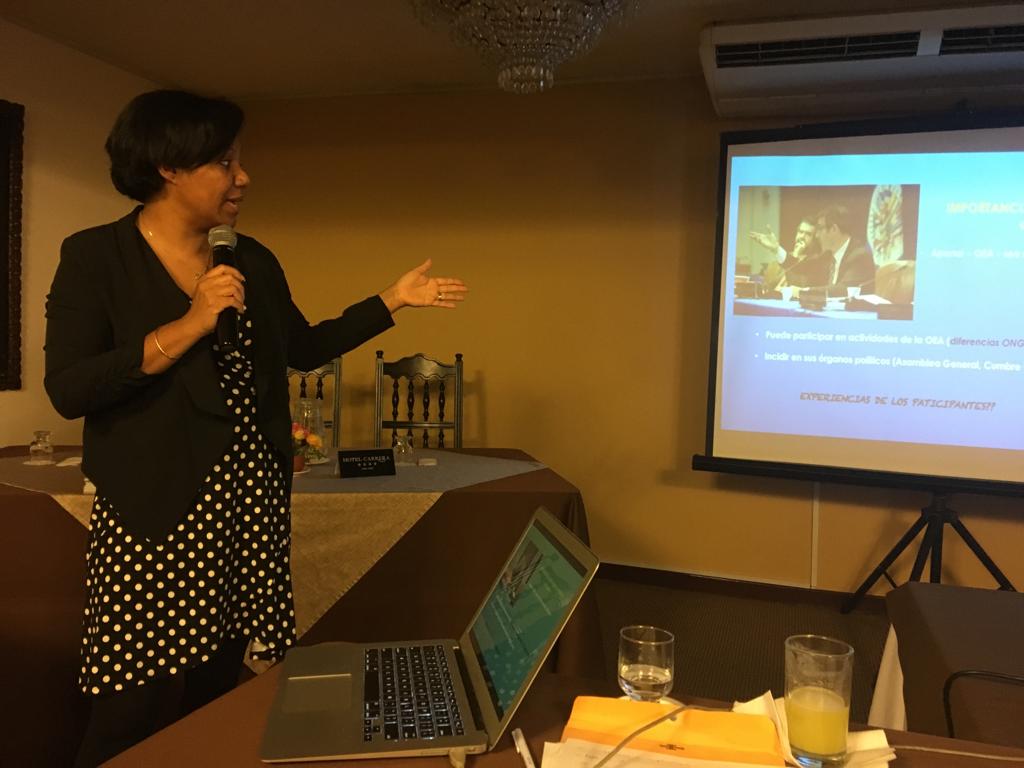
Race & Equality, through Elvia Duque, offered to provide the necessary technical support to the Afro-Peruvian activists in their petition for this hearing, as well as any other initiative discussed by the panel, in this way continuing to contribute to the empowerment of such important national and regional tools.

